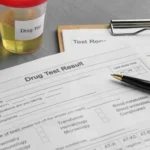Dialectical Behavioral Therapy In Idaho
Explore Our Comprehensive Behavioral Therapies at Icarus Idaho
Table of Contents
ToggleDialectical behavior therapy (DBT) is most known for its role in treating borderline personality disorder. It is true that DBT is a highly effective treatment for borderline personality disorder and symptoms like suicidal thoughts, but the use of the treatment has expanded tremendously over the years.
Now, DBT is used for a wide range of mental health issues and behavioral disorders. This includes substance abuse.
Icarus Behavioral Health Idaho takes a comprehensive approach to addiction and mental health treatment. We combine multiple therapies for optimal benefits and skill-building opportunities, including DBT.
Defining Dialectical Behavior Therapy
Dialectical behavior therapy is a type of behavioral therapy. The word “dialectical” means to combine or acknowledge opposite ideas. In dialectical behavior therapy sessions, a provider might say things like “both can be true” when considering opposing thoughts. This mindful awareness can help you feel more peace, regulate emotions, and act in a way you are proud of.
DBT was built on cognitive behavioral therapy (CBT) principles, but the two treatments are not the same. CBT focuses on understanding and changing your thoughts. On the other hand, DBT encourages radical acceptance. In DBT, you’ll notice your unhelpful thoughts without judgment and get through said thoughts by using coping strategies.
DBT is sometimes considered even more skill-based and in-depth than CBT. In short, DBT helps you accept the reality of your circumstances and build a thorough set of strategies that create behavioral changes.
What to Expect in DBT Sessions at Icarus
DBT sessions are structured. They often occur in group settings. Even though group therapy sessions are common in DBT, the treatment method can also be used in individual therapy. DBT sessions tend to last for about 60-90 minutes each.
Consistent sessions are important for treatment efficacy. DBT groups meet regularly (around once per week) throughout our inpatient and outpatient treatment programs.
When you show up for sessions, your DBT group will be “guided” by a therapist who is trained in using DBT. Your DBT group might be prompted to engage in various skill exercises. Or, you might discuss specific situations and how to handle them. Each day of DBT therapy will likely be a little bit different.
DBT Therapy in Addiction Treatment
DBT can be an effective treatment for substance use disorders. A DBT program can help people struggling with addiction by:
- Providing communication skills for interpersonal relationships. Healthy social relationships are crucial in addiction recovery, so it is important that you have the interpersonal tools you need for them to succeed.
- Managing stress. Since high stress levels can prompt harmful behaviors like substance use, DBT skills for addiction often aim to help individuals get through triggers and personal challenges.
- Promoting self-esteem. The new skills you learn in DBT can increase your self-confidence or self-esteem by showing you that you are capable.
- Facilitating harm reduction.
Group sessions also give you the chance to connect with others in recovery and work on addiction recovery skills together.
Get Effective outpatient Rehab Options at Icarus
DBT for Mental Health Conditions
Mental health conditions can impact your self-care, functioning at work, and interpersonal relationships. If you have a mental health disorder, DBT can improve not just how you feel emotionally but also your ability to participate in daily life tasks. Today, the diverse concerns DBT is recognized as an efficacious treatment for include:
- BPD.
- Depression.
- Bipolar disorder.
- Trauma disorders.
- Anxiety disorders.
- Eating disorders.
- Self-harm.
With some conditions, like BPD, clients can get to a place where they no longer meet the criteria for the disorder via DBT. Others, like those with bipolar disorder, can learn skills through DBT that help them manage symptoms and everyday circumstances.
DBT and Dual-Diagnosis Treatment
In some cases, mental health concerns and intense emotions can be underlying causes of substance abuse. If this is true for you or your loved one, both should be addressed. Co-occurring disorders can be vast and may include personality disorders, schizophrenia, mood disorders, anxiety disorders, and post-traumatic stress disorder.
Research shows that DBT is effective in treating borderline personality disorder and substance abuse in clients who experience both. Icarus Idaho addresses co-occurring disorders like BPD, anxiety, bipolar disorder, and depression to promote the best possible treatment outcomes.
What are DBT Skills?
The skills taught in DBT are strategies many people use for the rest of their lives–not just during the course of treatment. Common DBT skills and examples of how they work include but aren’t limited to:
- Interpersonal effectiveness. Since DBT was originally developed to treat BPD–a condition that can make healthy relationships tough–interpersonal effectiveness is a notable part of treatment. For example, you might work on setting boundaries or active listening.
- Emotion regulation. DBT encourages you to accept how you are feeling openly and without judgment (radical acceptance). From there, you can use positive self-talk, checking the facts, distractions (e.g., reading, listening to the radio), and other skills that aid emotional regulation.
- DBT sessions often involve practicing mindfulness activities. For example, a therapist may guide you (or you and your group) through mindful breathing exercises. These are meant to be grounding and generally require few to no physical objects, so you can use them anywhere.
- Distress tolerance. Just as you might expect, distress tolerance refers to your ability to tolerate distress and uncomfortable emotions. Techniques like urge surfing, radical acceptance, and self-talk can promote resilience and help you tolerate distress in everyday life.
Many DBT therapists teach TIPP (temperature, intense exercise, paced breathing, and progressive muscle relaxation) skills. You can turn to these skills in moments of distress.
How DBT is Used as Part of Icarus Idaho’s Comprehensive Approach
By employing therapists who use mixed treatment methods, we provide profoundly individualized treatment. Our comprehensive approach means that you or your loved one will get the benefits of multiple therapy types. In addition to DBT, Icarus Behavioral Health Idaho offers:
- Motivational interviewing.
- Acceptance and commitment therapy.
- Medication-assisted treatment.
- Family therapy sessions.
- Experiential therapy.
- Cognitive behavioral therapy.
- Process groups.
- Trauma therapy.
- 12-step.
Icarus Behavioral Health clients get personalized treatment plans tailored to meet their needs.
Up To 100% of Rehab Costs Covered By Insurance
Call Icarus for Dialectical Behavior Therapy in Idaho
Icarus Behavioral Health Idaho uses a combination of therapy methods, including DBT, to address substance use disorders and mental health conditions. We provide a full continuum of care, including inpatient and outpatient programs, that utilize DBT and other treatments.
Call Icarus Behavioral Health Idaho for comprehensive addiction, dual-diagnosis, or mental health treatment in Idaho today. Our staff members are here to tell you more about our programs or start the intake process now.
FAQs Regarding Dialectical Behavior Therapy (DBT)
Who are DBT therapists?
DBT therapists are mental health professionals with specialized training in dialectical behavioral therapy. Social workers, therapists, and psychologists can undergo DBT certification if it is a treatment they’d like to provide.
How much does dialectical behavioral therapy in Idaho cost?
The cost of DBT is consistent with other forms of talk therapy. It may differ depending on factors like where you seek treatment and health insurance coverage. Icarus Behavioral Health Idaho accepts most forms of insurance and other payment methods. Our team is here to ensure that getting the care you need is accessible.
References
Recent Post
-
What Time Can You Buy Alcohol in Idaho?
-
15 Recovery Journal Prompts (You Can Really Use!)
-
Is Kratom Legal in Idaho?
-
 Our REBT Therapy Worksheets and PDF
Our REBT Therapy Worksheets and PDF -
Our IFS Therapy Worksheets and PDF Resources
-
What Happens If You Fail A Drug Test on Probation in Idaho or Nationwide?
-
Can You Check Yourself Out of Rehab?
-
How Long Does Alcohol Stay in Saliva?
-
Does Medicaid Cover Rehab in Idaho?
-
Our Cognitive Processing Therapy Worksheets to Support Recovery
-
What Is The Fentanyl Fold?
-
Can BPD Cause Hallucinations and Psychosis?
-
Does Tricare Cover Dual-Diagnosis Treatment?
-
Can You Have BPD and Bipolar Disorder?
-
How Long Does Alcohol-Induced Depression Last?















